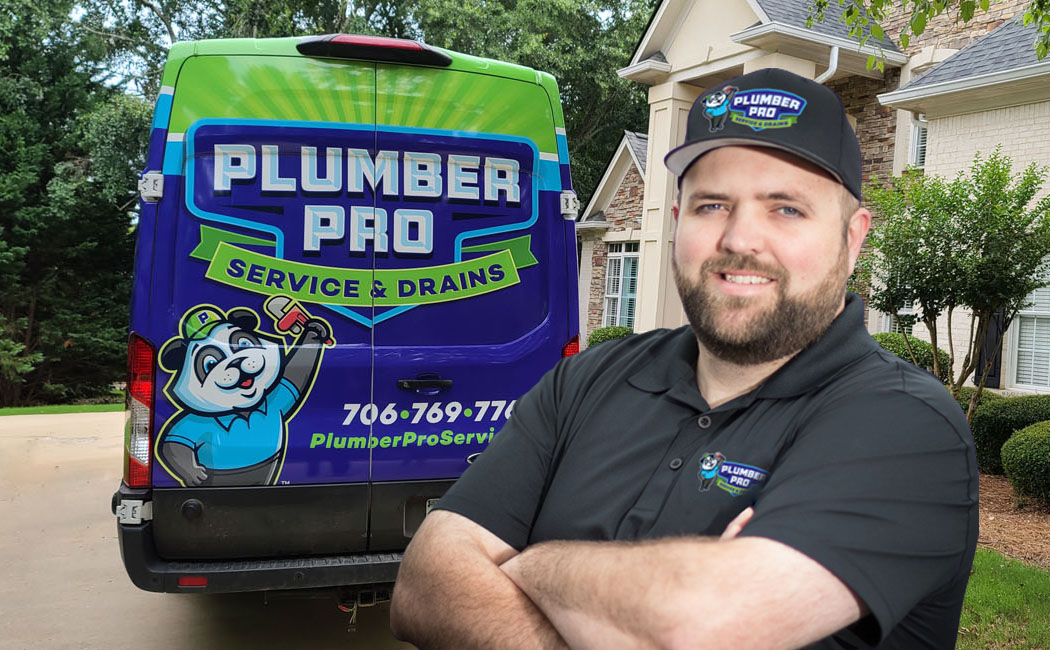
Gas vs. Electric: Expert Advice from Lawrenceville Plumbers on Choosing Your Water Heater

Introduction
Choosing the right water heater is a crucial decision for homeowners in Lawrenceville and the surrounding Gwinnett County area. With so many options available, it can be challenging to determine whether a gas or electric water heater best suits your needs. In this comprehensive guide, we will dive deep into the comparisons, advantages, and disadvantages of both types of water heaters while providing expert advice from trusted Lawrenceville plumbers. Our goal is to equip you with the knowledge to make an informed choice for your home.
Gas vs. Electric: Expert Advice from Lawrenceville Plumbers on Choosing Your Water Heater
Understanding Water Heaters
Water heaters are essential appliances in any household, providing hot water for various daily activities, including cooking, cleaning, and bathing. In this section, we will explore how gas and electric water heaters function.
How Gas Water Heaters Work
Gas water heaters utilize natural gas or propane as their energy source. Here's how they operate:
How Electric Water Heaters Work
Electric water heaters rely on electricity to heat water through heating elements located inside the tank:
Comparative Analysis of Gas vs. Electric Water Heaters
When comparing gas and electric models, several factors come Click here into play that could influence your choice.
Cost Efficiency and Operating Expenses
- Initial Cost: Generally, electric models have a lower upfront cost than gas units.
- Operating Costs: Natural gas tends to be cheaper than electricity in many regions; therefore, gas heaters often have lower monthly bills.
| Aspect | Gas Water Heater | Electric Water Heater | |----------------------------|---------------------------|-----------------------------| | Initial Cost | Higher | Lower | | Monthly Operating Cost | Lower | Higher |
Installation Requirements
- Gas Units: Require proper ventilation systems and may need professional installation due to safety concerns.
- Electric Units: Easier to install but may necessitate upgrades to your electrical panel if your home cannot handle higher loads.
Durability and Maintenance Considerations
Lifespan of Gas vs. Electric Models
Typically, both types can last around 10-15 years with proper maintenance. However:
- Gas units might face corrosion issues due to combustion byproducts.
- Electric units are often more straightforward regarding repair needs.
Maintenance Needs
Both types require regular maintenance:
-
For gas models:
-
Check for leaks
-
Inspect burners regularly
-
Clean venting systems
-
For electric models:
-
Inspect heating elements
-
Flush tanks annually
Energy Efficiency Ratings
Energy efficiency is an essential consideration when selecting a heater type.
Understanding Energy Factor (EF)
The Energy Factor is a measure of a water heater's overall efficiency; higher numbers indicate better performance:
- Gas heaters typically score between 0.5 to 0.7 EF.
- Electric units often range from 0.9 EF upward.
Performance Metrics Between Gas and Electric Heaters
When it comes down to performance metrics such as recovery rate and first-hour rating:

Recovery Rate Comparison
The recovery rate indicates how quickly each type can heat cold water:
- Gas units generally recover faster than electric ones.
First-Hour Rating Importance
This rating tells you how much hot water you can expect in one hour of use:
- Gas models usually offer higher first-hour ratings compared to their electric counterparts.
Safety Factors in Choosing Your Heater Type
Safety should always be at the forefront when deciding between gas and electric options.
Gas Safety Concerns
Gas leaks are a significant risk associated with natural gas heating systems. Proper installation is crucial for minimizing hazards.
Electric Safety Features
Electric models come equipped with multiple safety features such as over-temperature protection and leak detection systems but can pose risks related to electrical shock or fires if improperly maintained.
Environmental Impact Considerations
With increasing awareness about climate change and environmental footprints, it's essential to consider how each type impacts our planet.
Gas vs. Electric Emissions
While natural gas Visit website burns cleaner than other fossil fuels, it still emits carbon dioxide during combustion:
- Electric models might draw power from fossil fuel sources unless sourced from renewable energy like solar or wind power.
Local Regulations and Building Codes in Lawrenceville, GA
Before making your selection, familiarize yourself with local building codes concerning the installation of either type of heater.
What Are Common Local Requirements?
Consulting with professionals like Gwinnett Plumber Pro Service ensures compliance with all regulations during installation or replacement read more processes.
Costs Associated with Installation & Replacement Services in Lawrenceville
When considering costs related specifically to installation or replacement services:
FAQs About Choosing Between Gas and Electric Water Heaters
Which is better for my home—gas or electric?
It depends on your specific needs such as cost considerations, energy efficiency preferences, and existing infrastructure at home.
What’s more expensive—installation or operation?
Typically, installation costs are higher upfront for gas units; however, operating expenses may be lower over time.
Do I need special permits for installation?
Yes! Local regulations may require permits for new installations; consult with professionals like emergency plumbers near me.
Can I convert my existing unit from gas to electric?
Yes! However, conversion requires careful planning regarding electrical capacity.
How do I know if my current unit needs repair?
Signs include inconsistent temperatures or unusual noises during operation.
What’s involved in regular maintenance?
Maintenance involves checking components like valves and ensuring no leaks exist—call a reliable service provider for assistance!
Conclusion
Choosing between a gas or an electric water heater involves understanding various factors—from initial costs through operational expenses—to ensure you make an informed decision tailored explicitly for your home’s unique needs in Lawrenceville, Georgia.
By consulting experts like those at Gwinnett Plumber Pro Service for both water heater repair Lawrenceville GA queries as well as comprehensive water heater replacement Lawrenceville options tailored just right for you!
Whether you're looking into emergency plumber services or just want reliable 24-hour plumbing near me, local professionals stand ready to assist when plumbing troubles arise!